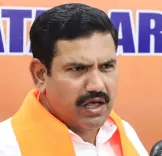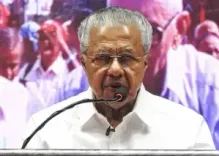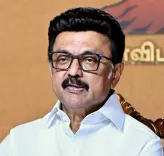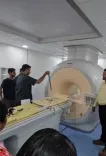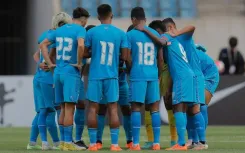How Did South India Become a Major Narcotics Hub?
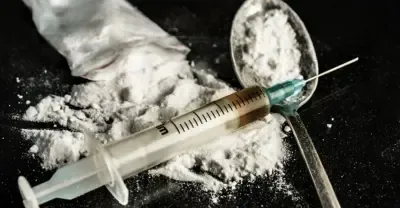
Synopsis
Key Takeaways
- South India is increasingly becoming a major narcotics trafficking hub.
- The shift in drug routes has made states like Kerala and Tamil Nadu critical transit points.
- International cartels are heavily involved in the narcotics trade.
- Corruption and negligence are significant challenges in combating this issue.
- Law enforcement agencies are adapting to sophisticated smuggling techniques.
New Delhi, July 26 (NationPress) The hurdles in combating the narcotics trade within India have escalated as new routes and players emerge. The era of drug syndicates relying solely on traditional paths through Afghanistan and Pakistan is long gone. The focus of law enforcement agencies, previously centered in the North, has shifted significantly, leading to South India now being a prominent transit zone for drug traffickers.
Currently, Kerala and Tamil Nadu have emerged as the primary hubs and transit locations for drug operations across the nation. Their extensive coastlines and proximity to international borders have made them increasingly attractive to smugglers.
With a 590-km coastline, Kerala offers ideal conditions for smuggling activities. The presence of busy airports and ports further facilitates the operations of these narcotics traffickers.
Tamil Nadu serves as the prime entry point for drugs smuggled from Sri Lanka. Investigations by the National Investigation Agency reveal that international cartels are involved, using Tamil Nadu as both an entry and transit point.
The scale of the issue became apparent when a former DMK member was apprehended for orchestrating a Rs 2,000 crore international drug operation. Further inquiries revealed his leadership role in a drug trafficking network spanning India, Australia, and New Zealand.
Additionally, Kerala has transformed into a central hub for cartels associated with the Golden Triangle and the Golden Crescent. The Golden Crescent involves cartels from Afghanistan and Pakistan, primarily smuggling opium, while the Golden Triangle includes traffickers from Laos, Thailand, and Myanmar dealing in methamphetamine and marijuana.
Once the drugs are brought into Kerala via sea routes, they are subsequently transported to Tamil Nadu, Andhra Pradesh, West Bengal, Assam, Meghalaya, and Manipur.
Smugglers in Kerala utilize routes through nearby states, exploiting the border with Andhra Pradesh for cannabis and synthetic drugs, while the border with Karnataka is used for cocaine and heroin trafficking.
What began as a minor issue has escalated into a significant international drug operation in Kerala and Tamil Nadu. Allegations of corruption and negligence have further fueled the growth of this illicit trade.
The influx of international tourists has also contributed to the surge in narcotics trafficking in these states. Cartels have invested heavily after recognizing the region's potential.
The sophistication brought by international cartels has complicated enforcement efforts. Notably, a significant number of Nigerians are involved in maintaining contact with local dealers to ensure drug delivery.
Recently, there has been a notable increase in drugs arriving from Iran, Dubai, and the Middle East. Given Kerala's large expatriate community in the Middle East, authorities suspect that some individuals may be acting as drug mules.
Customs officials have observed a consistent method of operation: drugs are typically sealed in air-tight plastic bags and hidden within tetra packs of fruit juice or chocolate boxes to mask odors and avoid detection by law enforcement.
Smugglers transporting marijuana often do so in smaller quantities to exploit loopholes in the Narcotic Drugs and Psychotropic Substances Act. The act classifies commercial quantities of marijuana as over 20 kg, prompting smugglers to carry lesser amounts to evade severe penalties.
In November of last year, the Indian Coast Guard intercepted a fishing trawler in the Andaman and Nicobar Islands, discovering 6,000 kilograms of methamphetamine valued at Rs 36,000 crore, marking one of the largest seizures to date.
Initial findings indicated that the trawler, manned by six Myanmarese crew members, had drifted off course, originally destined for Thailand. Investigators did not dismiss the possibility that some of the seized drugs were intended for distribution in Kerala.
Recall that a few years back, packets of Chinese tea washed ashore in various locations across the islands, leading to unexpected addiction among locals, with some capitalizing on the opportunity by selling the drugs to traffickers at a low price.
Investigations revealed that on September 21, 2019, the Coast Guard confiscated 1.16 kg of narcotics from a ship originating from Myanmar. Smugglers, realizing they were about to be caught, discarded 4,000 kilograms into the sea, which eventually surfaced in the islands.

